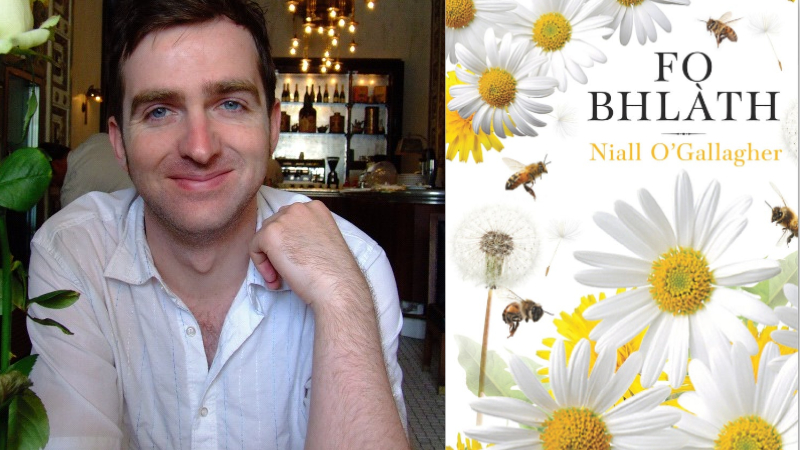
In this episode, Niall Munro talks with the Gaelic poet Niall O’Gallagher.
Niall studied and then taught at the University of Glasgow before going on to work as a journalist. As Niall mentions in the podcast, it was in his early days as a journalist that he began writing the poems that went into his first collection, Beatha Ùr (New Life), published by Clàr in 2013. Three years later, he published Suain nan Trì Latha (Three Nights Dreaming), in which - and again you’ll hear Niall discussing this - he made use of classical Gaelic forms to write modern love poems. A third collection, Fo Bhlàth (Flourishing), has just been published. Niall recently won the Gaelic prize in the Wigtown Poetry Competition in 2020 for his poem, ‘Penelope’.
Niall has worked as a translator of poetry from Gaelic, Irish and Catalan, including work by Christopher Whyte (shortlisted for the Saltire Scottish Poetry Book of the Year in 2019) and he has also published Scottish Gaelic versions of work by the Irish poet Biddy Jenkinson in the Gaelic journal STEALL, where he acts as poetry editor.
In 2019 Niall was named Bàrd Baile Ghlaschu, the City of Glasgow’s first Gaelic Poet Laureate. He is currently editing a selection of poems celebrating Glasgow and Gaelic.
In the conversation, Niall talks about how he came to write in Gaelic, links between the Irish language and Scots Gaelic, and the kinds of traditional Gaelic metres and rhymes that Niall employs. He also discusses his decision not to translate his own work, the historical and contemporary Gaelic community of writers and readers in Glasgow, and Niall’s work as Glasgow’s Gaelic Poet Laureate. Niall reads - in Gaelic and in English - three poems, 'Leisgeul a' Bhàird' / ‘Apologia Poetica’, ‘Scottish National Dictionary’, and 'An t-Eun Nach d' Rinn Sgèith' / ‘The Bird That Never Flew’.
You can find the poems that we discuss below and you can find out more about Niall’s work on his website, or follow him on X.
Leisgeul a' Bhàird
Na càin gach dàn le mearachd:
tha 'n ùghdar gun sgoilearachd.
Rinneadh gach sreath an dòchas
nach dìteadh an òglachas.
Is mi a' sgrìobhadh bàrdachd
cho cearbach le comhardadh
chan fhonnmhor ceòl na h-aicill
mar thoradh air m' an-fhaicill.
Cha deach mi riamh nam fhilidh
an rannaigheachd 's deibhidhe
chan fhaigheadh brìgh bhom dhìcheall
a' sgrìobhadh nan dàn-dìreach.
Mar sin, na toir an aire
do bhochdainn mo dhuanaire
ach gabh i, ged nach cante
gu bheil m' obair ealanta.
Niall O’Gallagher
Apologia Poetica
Don’t blame each poem for its faults:
their author is untaught.
Each verse was done in hope
the zest of youth’s below reproach.
For the poems that I write
are so clumsy in their rhymes,
their aicill-music irks:
I’m too careless at my work.
I never learnt to be a filí
skilled in verse forms, in the deibhidhe,
all my efforts are defeated
when I write in classic metres.
And so pay no attention
to the faults of my collection
but accept it, though it proves
there’s no art to my oeuvre.
by Niall O’Gallagher
Translated by Peter Mackay, from Suain nan Trì Latha
